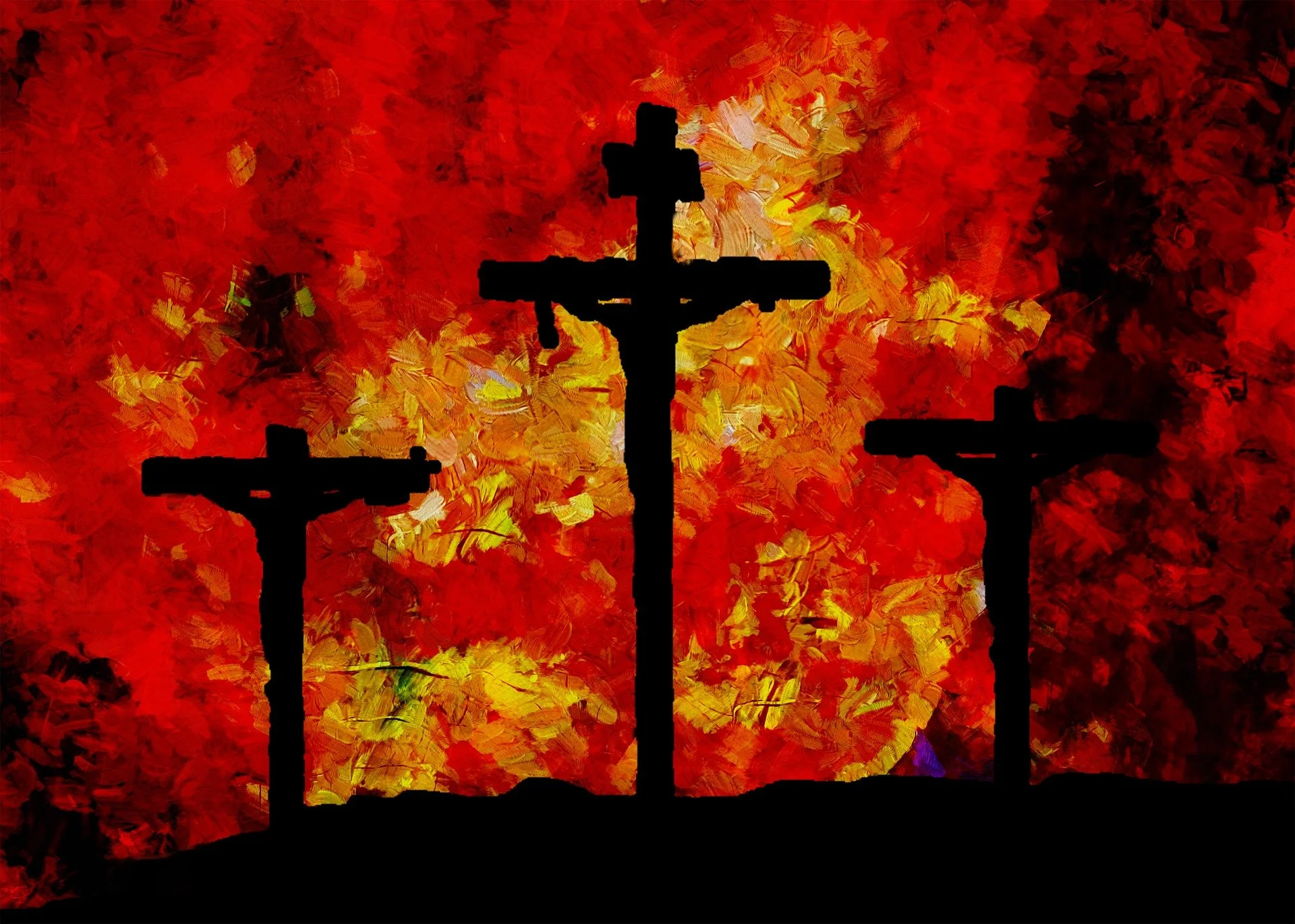Mulling It Over - Romans 8:18-25 - Part 2: The Groaning and the Hope
It has been months since I did a Mulling it Over post on this Faith page. When last we came together here, I was studying the 8th chapter of Romans. We learned from the very first verse that in Christ Jesus we are not condemned. He came, not to condemn, but to save that which was lost. We were lost in our sin, but when we gave our hearts to Him we became something different.
We learned that the law of the Old Testament was weak and only a shadow of what God truly wanted. Because of this weakness, God sent His only Son, Jesus, to do what the Law could not. Having just celebrated another Easter reminds us of the wonderful, awful, necessity for this sacrifice of Christ’s own body on the the cross. The perfect lamb of God opened the gateway to the throne room of His Father.
Now, as we live on this earth, entombed in our flesh, we struggle day after day to walk in the spirit, not the flesh, but it is only by setting our minds on the Spirit, and feeding the Spirit that we are able to put aside that flesh and regularly abide in Christ. We are not under obligation to the flesh, and if we have that same Spirit who raised Jesus from the dead we can put to death the deeds of the flesh.
When we put our faith in Christ we have been adopted as the sons and daughters of God. This gives us the right to cry out to God and call Him, Abba! Father! This sonship enables us to be heirs to the Kingdom of God and all the rights and privileges therein. (To see all the previous posts click on the links: Romans 8:1-2, Romans 8:3-4, Romans 8:5-8, Romans 8:9-11, Romans 8:12-13, Romans 8:14-17, Romans 8:18-25 - Part 1 )
Today we are looking back at a few things we already covered in Part 1, but with this chunk there is a lot to cover, so we are going to look at it in pieces, rather than phrase by phrase.
“18 For I consider that the sufferings of this present time are not worthy to be compared with the glory that is to be revealed to us.
19 For the anxious longing of the creation waits eagerly for the revealing of the sons of God.
20 For the creation was subjected to futility, not willingly, but because of Him who subjected it, in hope
21 that the creation itself also will be set free from its slavery to corruption into the freedom of the glory of the children of God.
22 For we know that the whole creation groans and suffers the pains of childbirth together until now.
23 And not only this, but also we ourselves, having the first fruits of the Spirit, even we ourselves groan within ourselves, waiting eagerly for our adoption as sons, the redemption of our body.
24 For in hope we have been saved, but hope that is seen is not hope; for who hopes for what he already sees?
25 But if we hope for what we do not see, with perseverance we wait eagerly for it.”
I would like to look at these verses as a comparison of place, not only physical locale, but spiritual position.
Physical:
When sin came into our world with the first choice of disobedience, corruption came with it. Life which was meant to be eternal, gradually shortened. Living things grew old. Not only that, but disease began to ravage humanity and all other created things. Plants contracted blights, animals became infested with parasites, and humans knew pain in both childbirth and aging.
Spiritual:
Image by Gerd Altmann from Pixabay
Sin distanced us from the Creator. Not only were we driven from the Garden, but we lost the personal relationship with our God. We became the naughty sheep that needed to be tended across the wilderness, and God our keeper. He created boundaries with the Law, a shadow of that which He originally intended, but a necessity to tie a Holy, Pure God, to a stiff necked and sinful people.
When we compare these two areas we can divide the above verses into a compare and contrast of sorts.
Physical/Suffering - Spiritual/Glory -
Anxious longing (vs. 19) - Glory revealed (vs. 18)
Waiting (vs. 19 & 23 & 25) - Sons of God revealed (vs. 19)
Subjected to futility (vs. 20) - Creation set free (vs. 21)
Not self-determined (vs. 20) - Children of God set free and glorified (vs. 21)
Enslaved to corruption (vs. 21) - Adoption as sons (& daughters) (vs. 23
Groaning (vs. 22 & 23) - Redemption of our bodies (vs. 23)
Pain in childbirth (vs. 22) - Fulfillment of hope (vs. 24 & 25)
First fruits of the Spirit (vs. 23)
Persevering (vs. 25)
This entire section of Romans 8 is about what is and what will be. What is plays out in this physical realm, and includes suffering. We suffer all throughout life on this fallen planet. Some suffer far more than others, but we all suffer. For the Christ follower this doesn’t just include the same trials and struggles as others, but has the added component of a waiting and longing for what will be: our life in glory with our Lord.
Paul includes the suffering of creation, which I find interesting, but it makes sense. God’s plan was for a beautiful place full of life and energy. It was a place of freedom. Man lived in concert with his Creator and his creation. The world, and all that was in it was for man’s pleasure and care.
Creation groans and longs for its former glory. Storms, hurricanes, typhoons, earthquakes, forest fires; these are all signs of a creation yearning to be what it was originally intended to be. It wasn’t given the choice of suffering, as the Creator subjected it to futility, so that we would have hope.
Let’s just pause there a minute. God allowed this amazing thing He had created to become less than so that you and I would have hope. I don’t know about you, but being able to go outside, touch a fuzzy kitten, see the trees changing in the fall, hear the ocean waves crashing, or a stream gurgling, and smelling the seasons as they change always gives me hope and reminds me that my God is near even when the world is in chaos.
Not only does Creation feel this yearning and goes through the pains of childbirth, waiting for its return to glory, we do too. I know as I age I identify more closely with this groaning and suffering. I know that one day I will be in a glorified body with nor more coughing, sinus issues, achy knees and wrists, and no more desire for things that are not good for me. I will know fully, just as I am fully known! (I Corinthians 13:12) Our hope will be full, and we will stand before our Abba, Father. What glory that will be.
Finally, the last verse in this section is pertinent to where we are right now. We must wait for hope to be fulfilled, and wait for it eagerly with perseverance. Remember, my word for the year is Wait? God in His rich and lavish love is reminding us that we are in a waiting time, but glory is coming. Creation knows this to be true, and we can do.
Dear friends, with perseverance wait eagerly for hope.



















































